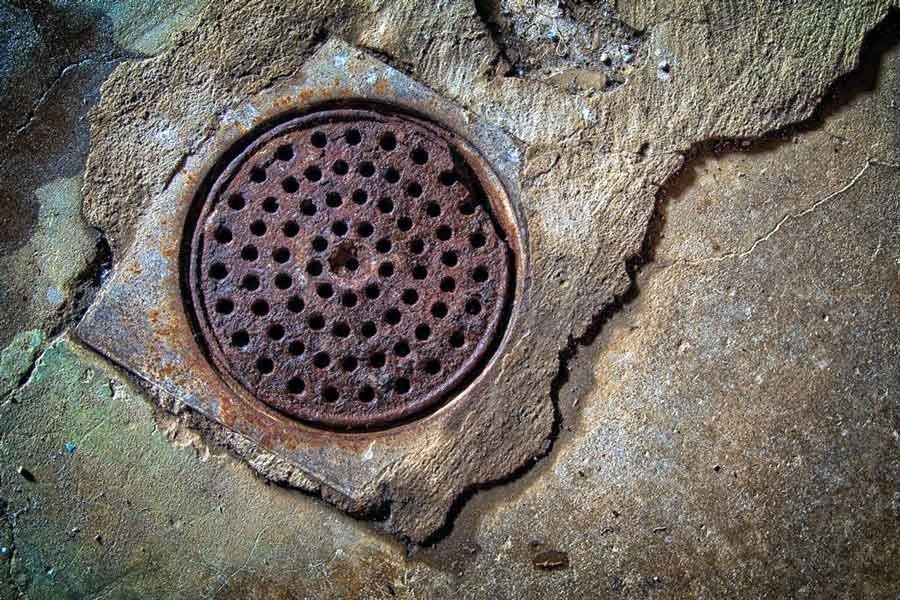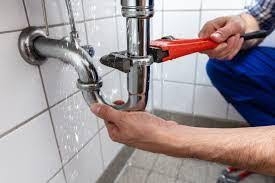Why does basement drain backing up when washing dishes?
Have you ever experienced a situation where the basement drain starts backing up while you’re washing dishes? It can be a frustrating and confusing situation, especially if you don’t know what’s causing it.
Basement drain backups are a common problem that homeowners face. There are several reasons why this can happen, and it’s essential to understand the root cause to prevent it from happening again in the future.
In this article, we will explore the reasons why basement drains back up when washing dishes. We will also provide solutions to help you prevent this problem from occurring, so you can continue to use your kitchen sink without any worries. So, let’s dive in and find out what causes this issue and how you can fix it.
What Causes Drain Backups in Basements?
Basement drain backups can be one of the most frustrating plumbing emergencies that a homeowner can face. The causes of these backups can vary, but the end result is always the same: gallons of water pouring into your home, potentially causing water damage and health hazards.

One common cause of basement drain backups is clogged drain lines. Over time, drain lines can become obstructed with debris such as hair, soap scum, and food particles. These blockages prevent water from flowing freely through the pipes and can cause water to back up into your basement.
Another cause of basement drain backups is tree roots growing into sewer lines. As trees grow, their roots can penetrate sewer lines and cause blockages. This can lead to water backing up into your basement and causing flooding.
A third cause of basement drain backups is a blocked floor drain. This is the lowest drain in your home and is typically found in the basement. If this drain becomes clogged, water can back up into your basement.
To prevent basement drain backups, it’s important to take preventative measures such as not flushing feminine products or paper towels down the toilet and having a professional plumber inspect your plumbing fixtures regularly. If you do experience a basement drain backup, it’s important to act quickly and call a drain specialist or professional plumber to address the issue.
In addition, installing a backwater valve can help prevent basement drain backups. This device allows excess water to flow out of your home while preventing sewer gases from entering your home. Backwater valves come in several types, including ball plugs, pressure plugs, twist plugs, and clean-out plugs.
Common Reasons for a Drain Backup in the Basement
Basement drain backups are a frustrating issue that many homeowners face. Not only can they cause water damage to your home and property, but they also present a sanitation issue. Understanding the common reasons for a drain backup in the basement can help you identify potential problems and prevent future issues.
The first common cause of a basement drain backup is clogged drain lines. Drain lines can become obstructed over time due to a buildup of debris such as hair, soap scum and food particles. These blockages prevent water from flowing freely through the pipes and can cause water to back up into your basement. To prevent this issue, it’s important to regularly clean your drains and avoid flushing inappropriate items down the toilet or sink.
Another common cause of basement drain backups is tree roots growing into sewer lines. As trees grow, their roots can penetrate sewer lines and cause blockages. If left untreated, this can lead to water backing up into your basement and causing flooding. If you suspect that tree roots may be causing your basement drain issues, it’s important to call a professional plumber to assess the situation and determine the best course of action.
Blocked floor drains are also a common cause of basement drain backups. The floor drain in your basement is typically the lowest drain in your home and is intended to prevent flooding. If this drain becomes clogged, water can easily back up into your basement. To prevent this issue, regular cleaning and maintenance of your floor drain is essential.
Preventative measures can help prevent basement drain backups. Avoid flushing inappropriate items such as flushable wipes, paper towels, and feminine products down the toilet. These items are not designed to break down in sewer lines and can cause blockages. Regular plumbing inspections by a professional plumber can help detect issues before they become a major problem.
In addition to preventative measures, installing a backwater valve can help prevent basement drain backups. This device allows excess water to flow out of your home while preventing sewer gases from entering your home. Backwater valves come in several types, including ball plugs, pressure plugs, twist plugs, and clean-out plugs.
How to Tell if Your Basement Drain is Backing Up When Washing Dishes
If you live in a home with a basement, you may have experienced the unfortunate event of a basement drain backing up while washing dishes. This can not only cause inconvenience, but it can also lead to serious water damage and even plumbing emergencies. To avoid this problem, it’s important to know how to tell if your basement drain is backing up while washing dishes. Here are a few signs to look out for:
1) Slow Drainage: If you notice that water is taking longer to drain from your sink than usual, this could be a sign that your basement drain is backing up. As water flows from your sink, it should immediately drain away, but if it seems to be lingering for too long or is taking longer than usual to disappear, this could mean that there is a blockage in your pipes.
2) Unpleasant Odors: The accumulation of water in your pipes due to a drain backup can lead to the release of foul odors. If you notice a lingering smell of sewage or sewer gases emanating from your sink or anywhere in the basement, this could be a sign that your basement drain is backing up.
3) Gurgling Sounds: When water is flowing through your pipes, it should do so smoothly and quietly. However, if you hear strange gurgling or bubbling sounds coming from below the sink, this is a sure sign that your basement drain is backing up. This sound is caused by air bubbles escaping from the water as it is forced to squeeze past the blockage.
4) Water Level in the Basement: If you notice that the water level in your basement is rising, this is a clear indication that your basement drain is backing up. A flooded basement can lead to serious damage to your property and can even pose a health risk due to the presence of harmful bacteria in the water.
If you have experienced any of these signs, it’s important to act quickly to prevent any further damage. The first step is to turn off the water supply to all fixtures in your home, including the sink and washing machine. Then, you should contact a professional plumber who can quickly diagnose the issue and recommend the best course of action.
Preventative Measures to Avoid a Backup in the Basement Drain
As a homeowner, you know that plumbing emergencies can be a real headache. One of the most common issues that homeowners face is a clogged basement drain that leads to a backup of water and sewage. Not only is this problem unpleasant and smelly, but it can also lead to significant damage to your property and even pose a health risk due to the presence of harmful bacteria in the water.

To avoid a backup in your basement drain, it’s essential to take preventative measures. Here are some helpful tips to keep your drain lines clear and prevent any future clogs.
1. Dispose of Waste Properly: One of the most common causes of basement drain backups is flushing waste down the toilet that shouldn’t be flushed. Items like feminine products, paper towels, and one-ply toilet paper can quickly cause blockages and lead to clogs. Always dispose of waste properly, and remember that only human waste and toilet paper should be flushed down the toilet.
2. Keep Tree Roots at Bay: Tree roots are a common issue that homeowners face when it comes to plumbing. Roots can wrap around your sewer lines and cause backups, leading to expensive repairs. Keep trees and shrubs a safe distance away from any drain lines to prevent root infiltration.
3. Avoid Pouring Grease Down the Drain: Cooking grease and oil can build up in your pipes over time, leading to a stubborn clog. Instead of pouring the grease down the drain, pour it into a container and dispose of the container in the garbage.
4. Use Mesh Screens: To prevent hair, soap scum, and other debris from entering your drain lines, use mesh screens on your shower and sink drains. These screens can catch particles before they cause a clog.
5. Regular Maintenance: It’s essential to have your drain lines inspected and cleaned periodically. The accumulation of debris and sediment in your pipes can lead to a stubborn clog that requires professional help to fix. Regular maintenance by a drain specialist can keep your drain lines clear and prevent any surprises down the road.
Meet Lila Robinson, an expert in the world of plumbing with a talent for delivering valuable insights and captivating articles on an array of plumbing topics. With years of experience handling complicated plumbing issues, Lila has become a go-to resource for homeowners and businesses alike.
Packing vast knowledge in plumbing tools and science, Lila creates a sense of community on her blog and social media accounts, engaging with readers from all walks of life. Her writing style is authentic, unique, and engaging, and she has an exceptional ability to break complex concepts into understandable ideas.
If you have encountered a plumbing issue, chances are Lila Robinson has conquered it. Her articles uncover the underlying problems behind some of the most unexpected plumbing problems, from tankless water heater error codes to drain snakes in vents.
Whether you’re a beginner or an experienced plumber, Lila Robinson’s blog has something for you. Follow her social media accounts to keep up-to-date with the latest posts and join the conversation.